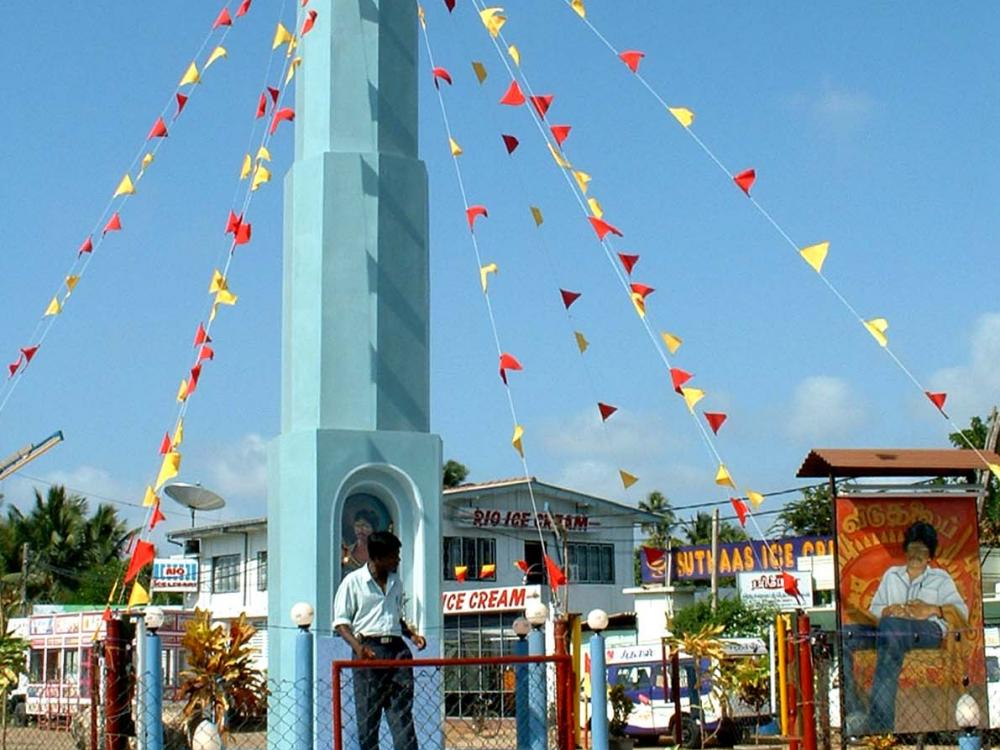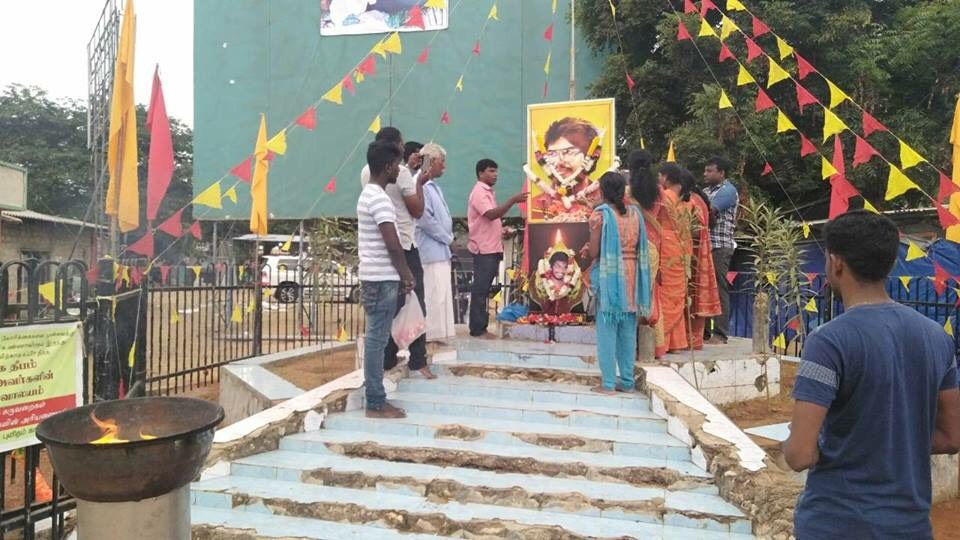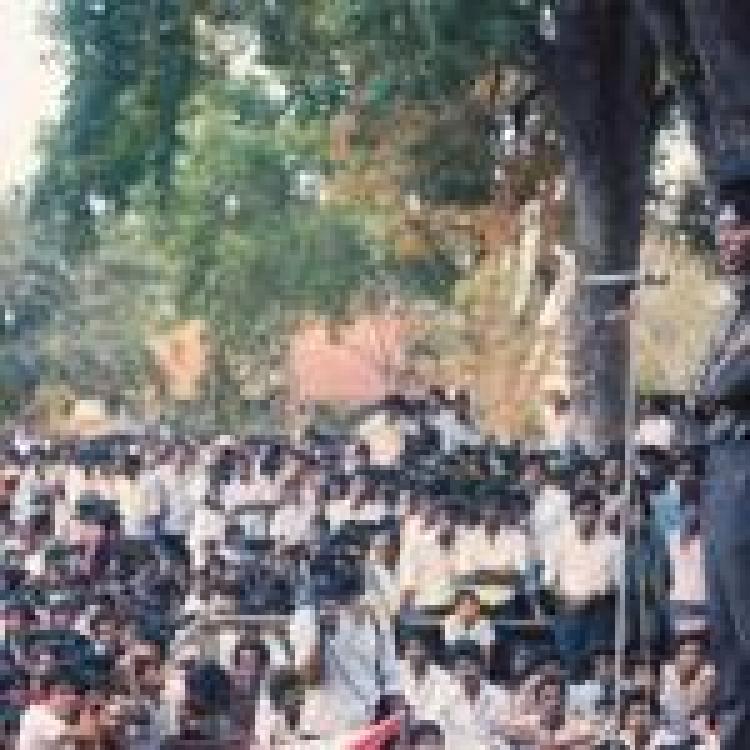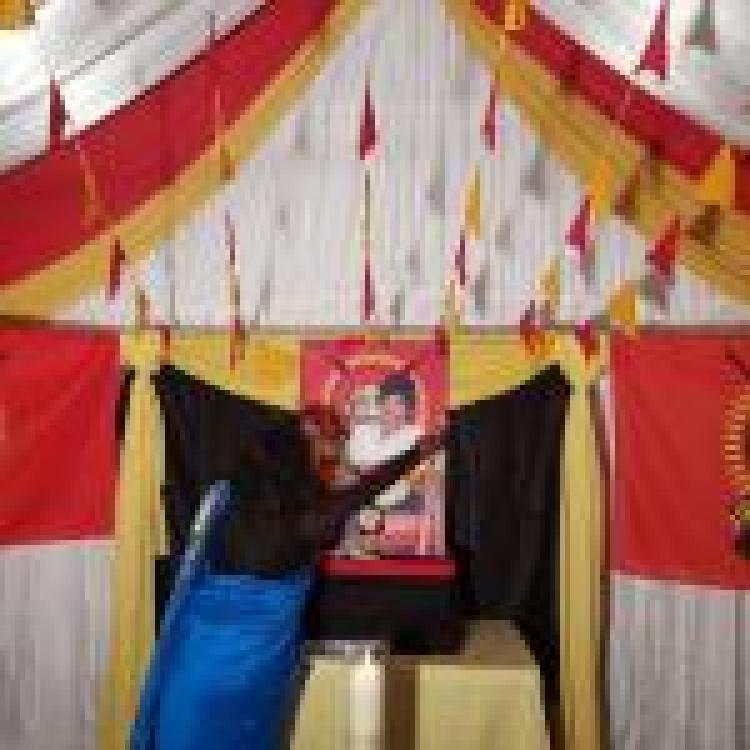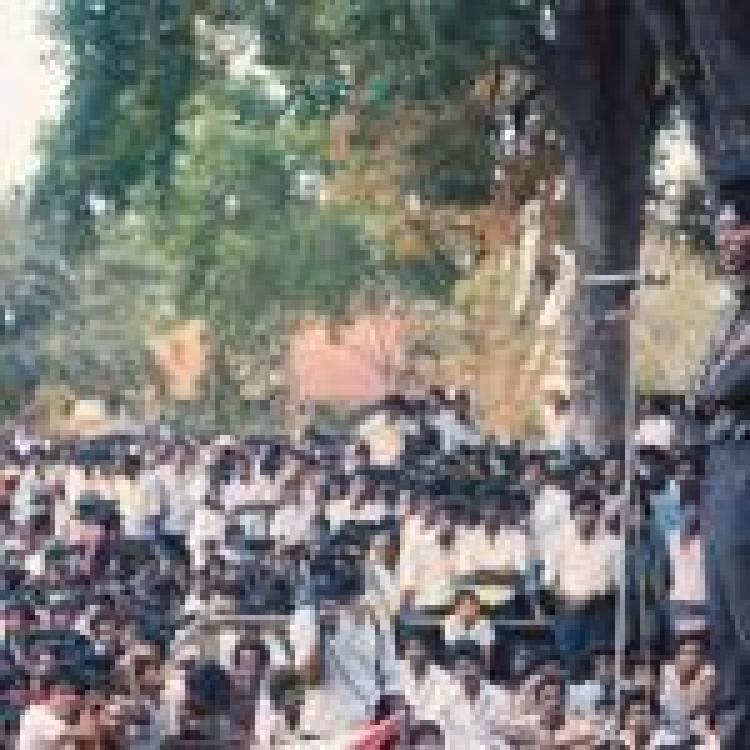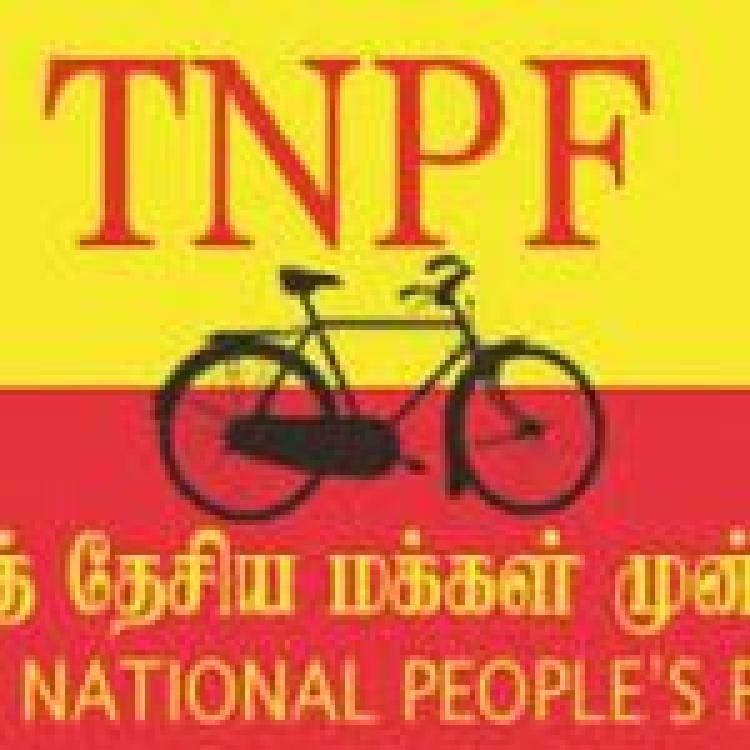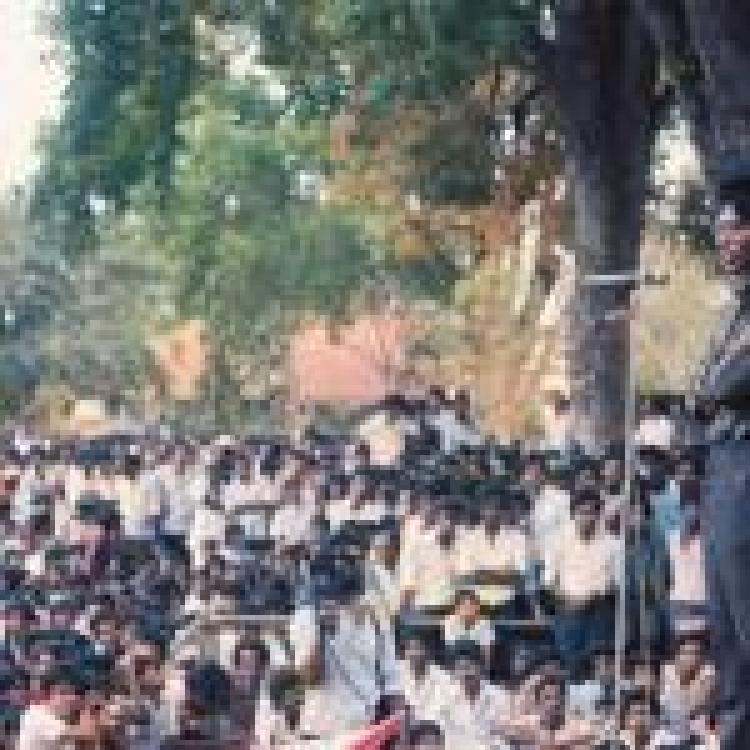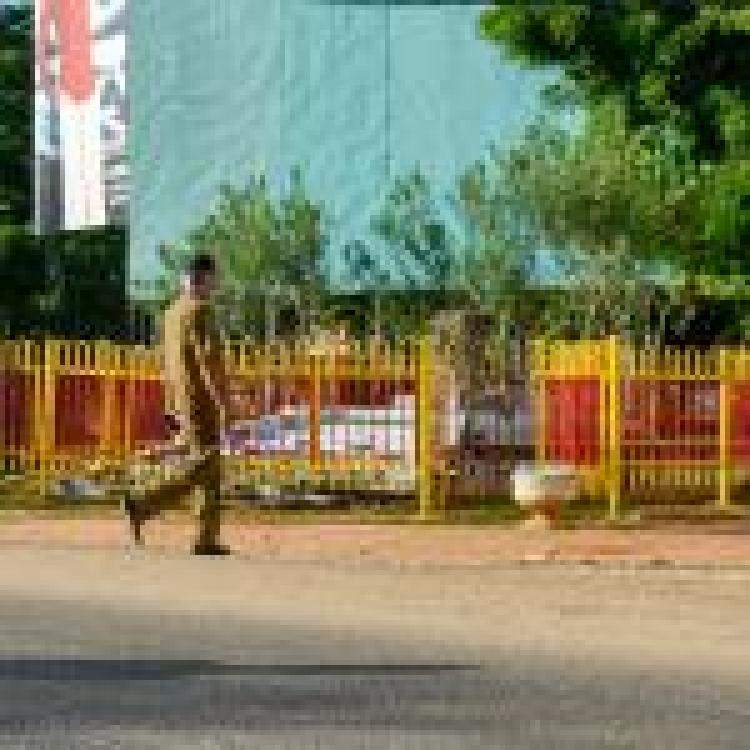Today marks 33 years since the death of Lt Col Thileepan, a political wing leader of the LTTE who fasted to death, in a protest appealing to the Indian government to honour pledges made to the Tamil people.
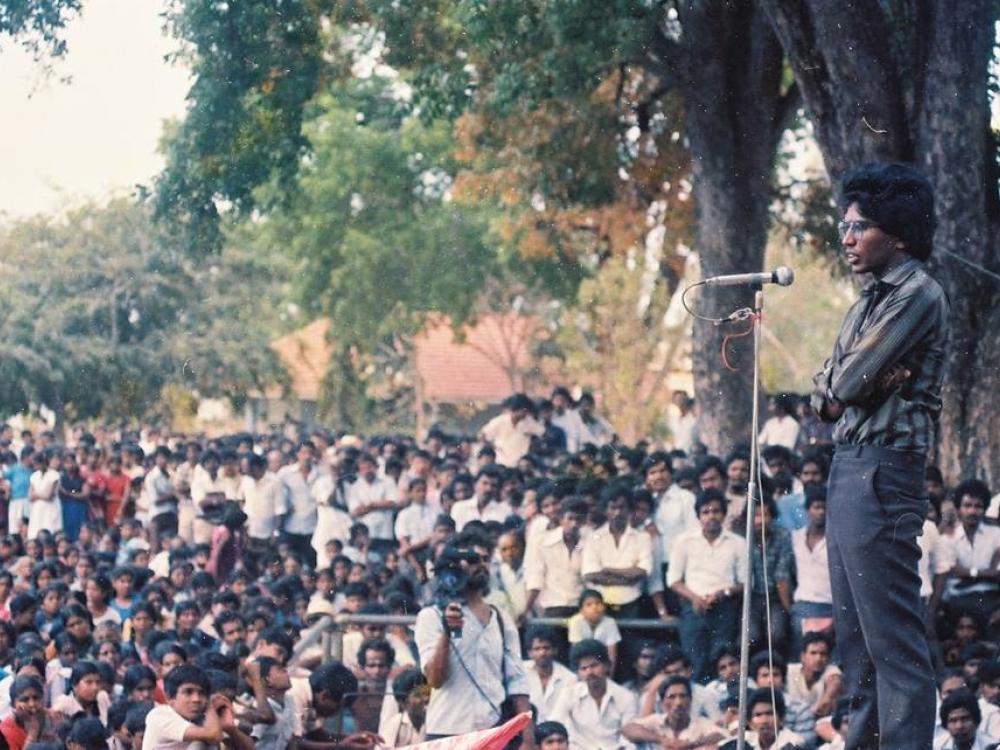
Thileepan began his fast on the September 15, 1987, with 100,000 people gathered around the historic Nallur Kandwaswamy Temple in Jaffna.
On September 13, 1987, Thileepan put forward five demands to the Indian government following the signing of the Indo-Lanka accord in July 1987:
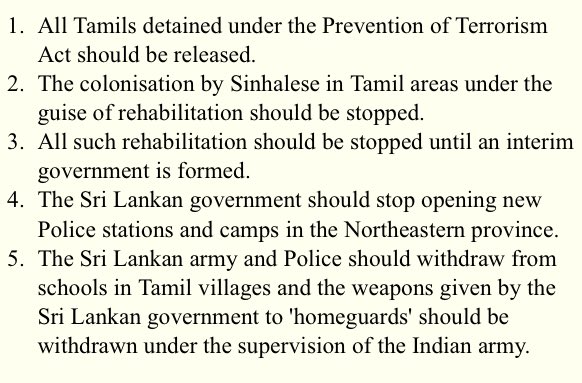
Three decades on, Tamils continue to call for the demands made by Thileepan.
See a video of his famous speech below.
Inspired by Mahatma Gandhi, Thileepan began his non-violent resistance after the Indian government failed to acknowledge the demands he put forward. On September 22, 1987, then Indian High Commissioner J N Dixit arrived in Sri Lanka, however did not meet with Thileepan nor did he address the five demands.
See an eye witness account of his protest written by Adele Balasingham here.
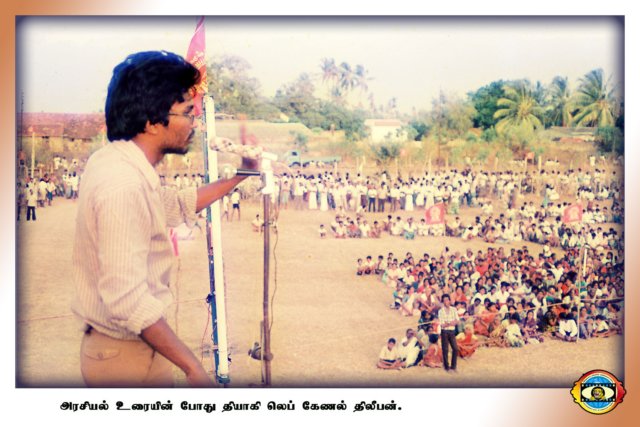 |
| Thileepan addressing the thousands who had come to witness his protest in Jaffna. |
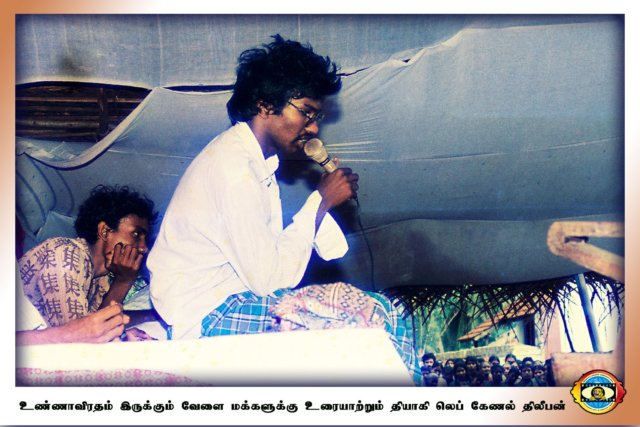
He passed away after refusing food and water for 11 days. His death sparked widespread grief across the Tamil homeland, with black flags hoisted and thousands of grieving mourners attending his funeral. As per his last wish, Thileepan's body was donated to the medical faculty of Jaffna University. In Tamil, Thileepan's name is preceded with the honorific thiyaga theepam - light of sacrifice.
As Jaffna’s political wing leader, Thileepan was a popular figure in the Tamil community and was already renowned for his courage in combat. The LTTE had named a series of medical centres, located both in government and LTTE-held areas, after him. The Thileepan hospital in Neduntheevu was one such centre, and had provided free medical treatment to 12,627 patients in its first year of service in 2003.
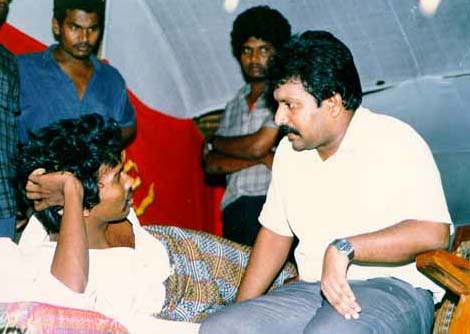 |
| Thileepan with LTTE leader Prabhakaran during his hunger strike. |
Born Rasiah Partheepan, in 1964 as the fourth son of a school teacher in Urelu, a hamlet of Urumpirai in the Jaffna District, he took up the name Thileepan when he joined the LTTE.
His motivation for joining the Tamil freedom struggle was prompted at the age of ten by the deaths of ten youths in a violent assault by Sinhala policemen on the World Tamil Research Conference held in Jaffna in 1974.
The exact spot in Nallur where Thileepan began his strike was the site of a memorial built the year after his death. The tower was destroyed by the Sri Lankan army after they captured Jaffna in 1996. Despite being reconstructed during the ceasefire period, the memorial was destroyed again in 2007. The remnants of the tower were once again demolished further in 2012.
|
The original memorial |
The memorial in its current state |
In the years following his strike, Lt Col Thileepans’s death continued to be widely marked across the North-East and throughout the diaspora. However, this year, Sri Lankan security forces have intensified their crackdown on remembrances. While they have always intimidated and harassed Tamils for attempting to commemorate those who lost their lives during the struggle, the Sri Lankan security forces have ramped up their crackdown on events planned to commemorate Lt Col Thileepan.
Yesterday, Point Pedro Magistrate Court banned a hunger strike organised by Tamil political parties in protest over the ban on commemorating the anniversary of Lt Col Thileepan's fast unto death.
Last week, the Sri Lankan police blocked an event that was to be held in Vavuniya and arrested M K Shivajilingham, a former northern provincial council member, as he attempted to pay tribute to Thileepan in Nallur. Security forces also reportedly destroyed arrangements made for the remembrance in the early hours of September 15, which marks the beginning of the week-long commemoration.
Numerous commemoration events usually take place throughout the North-East, with current TNA leader R Sampanthan saying in 2002,
“The sacrifices made by LTTE leader Thileepan, other combatants and Tamil people have laid a strong foundation for the present peace talks. This fact should not be forgotten by anyone… Any political solution to the Tamil national question must recognize the sacrifices made by the Tamil combatants and the non-combatant Tamil civilians to our struggle."
In 2004, the President of the Jaffna Muslims Peace Consortium, Al Aleem Marleen also praised the LTTE political leader, stating,
“Col.Kittu, Lt.Col.Thileepan and several others from Jaffna worked together with Muslim people in Jaffna and sacrificed their lives for the benefit of all Tamil speaking people.”
See also, the Indo-Sri Lanka Accord and the LTTE's response to it.
Although Thileepan's sacrifice took place three decades ago and the armed conflict ended over ten years ago, the demands Thileepan put forward remain unfulfilled and the issues faced by Tamils in the North and East remains the same. The PTA which has disproportinately targeted Tamils, is still in effect today, the colonisation of traditionally Tamil areas has intensified under the guise of 'archaeology' and the North and East remains heavily militarised.
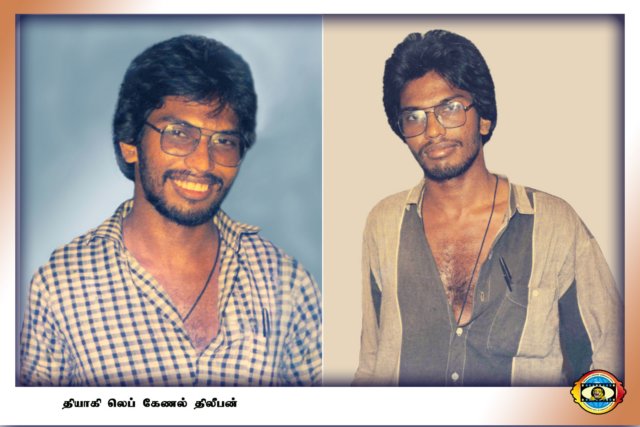 |

